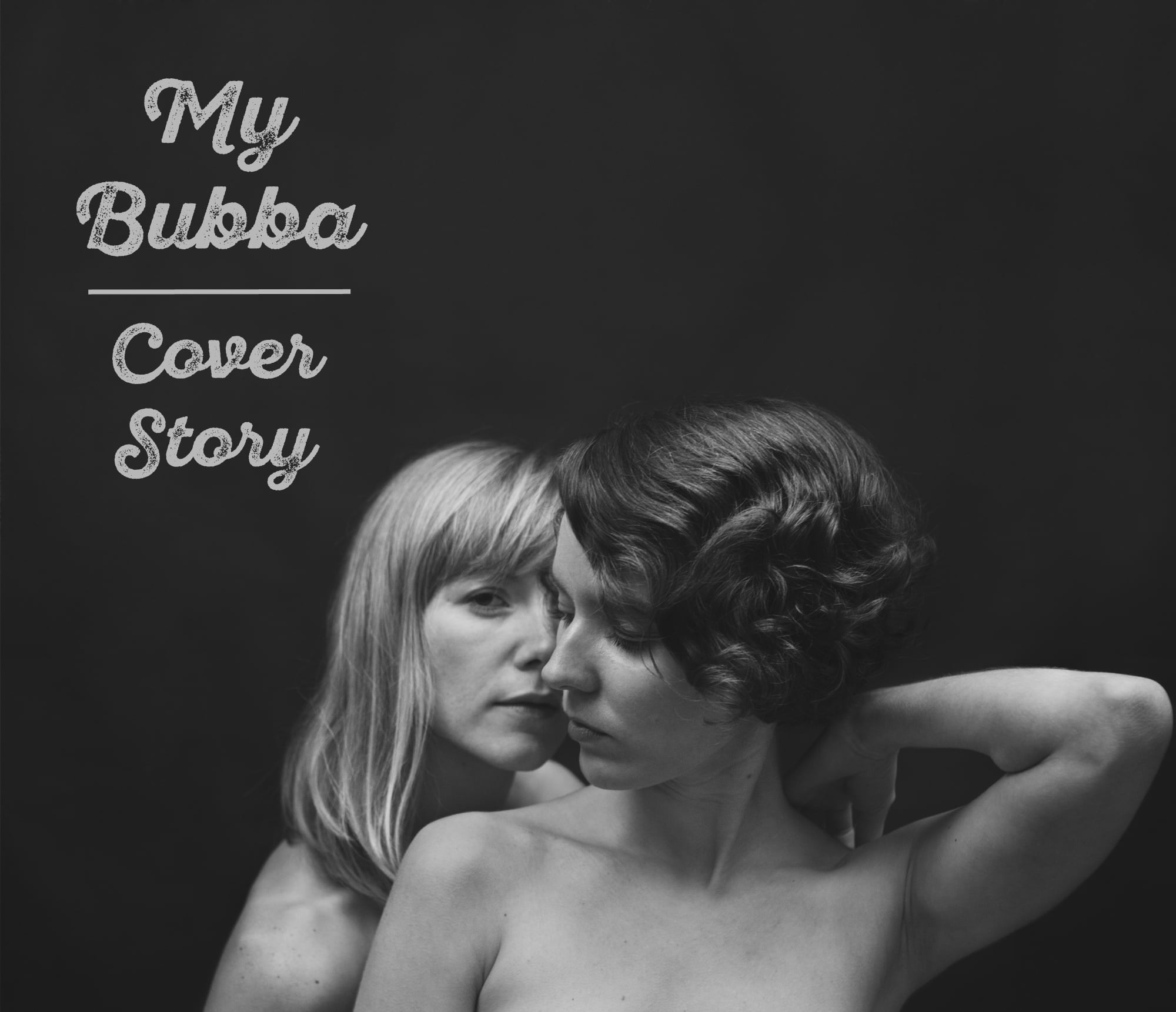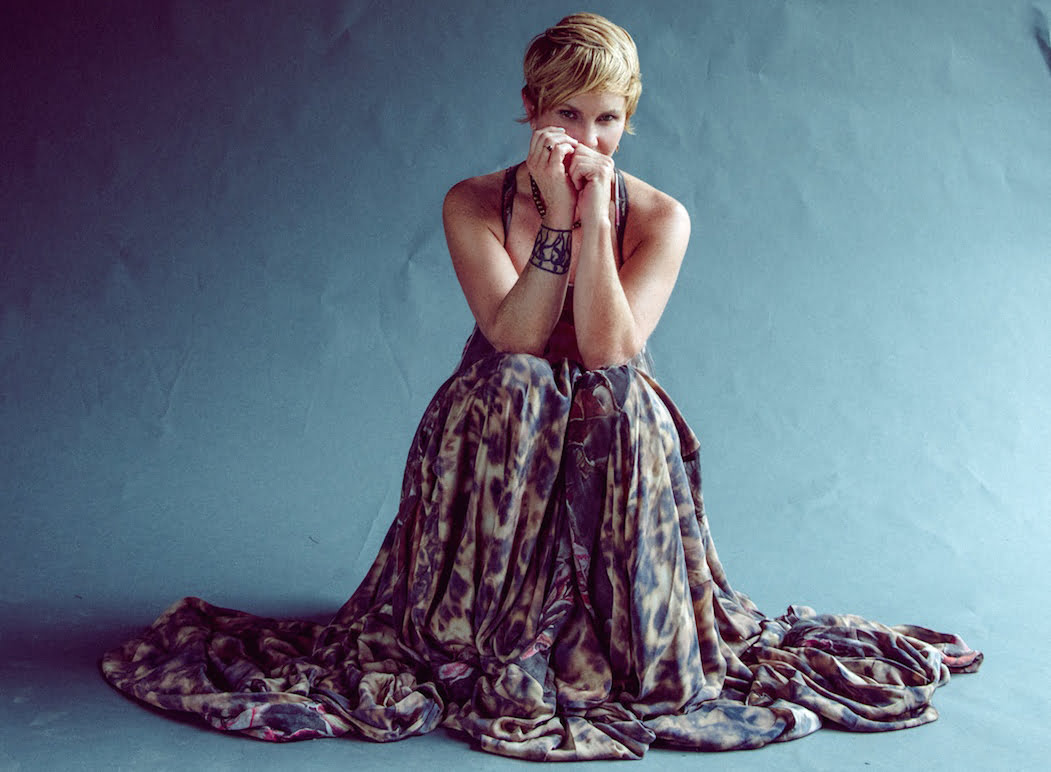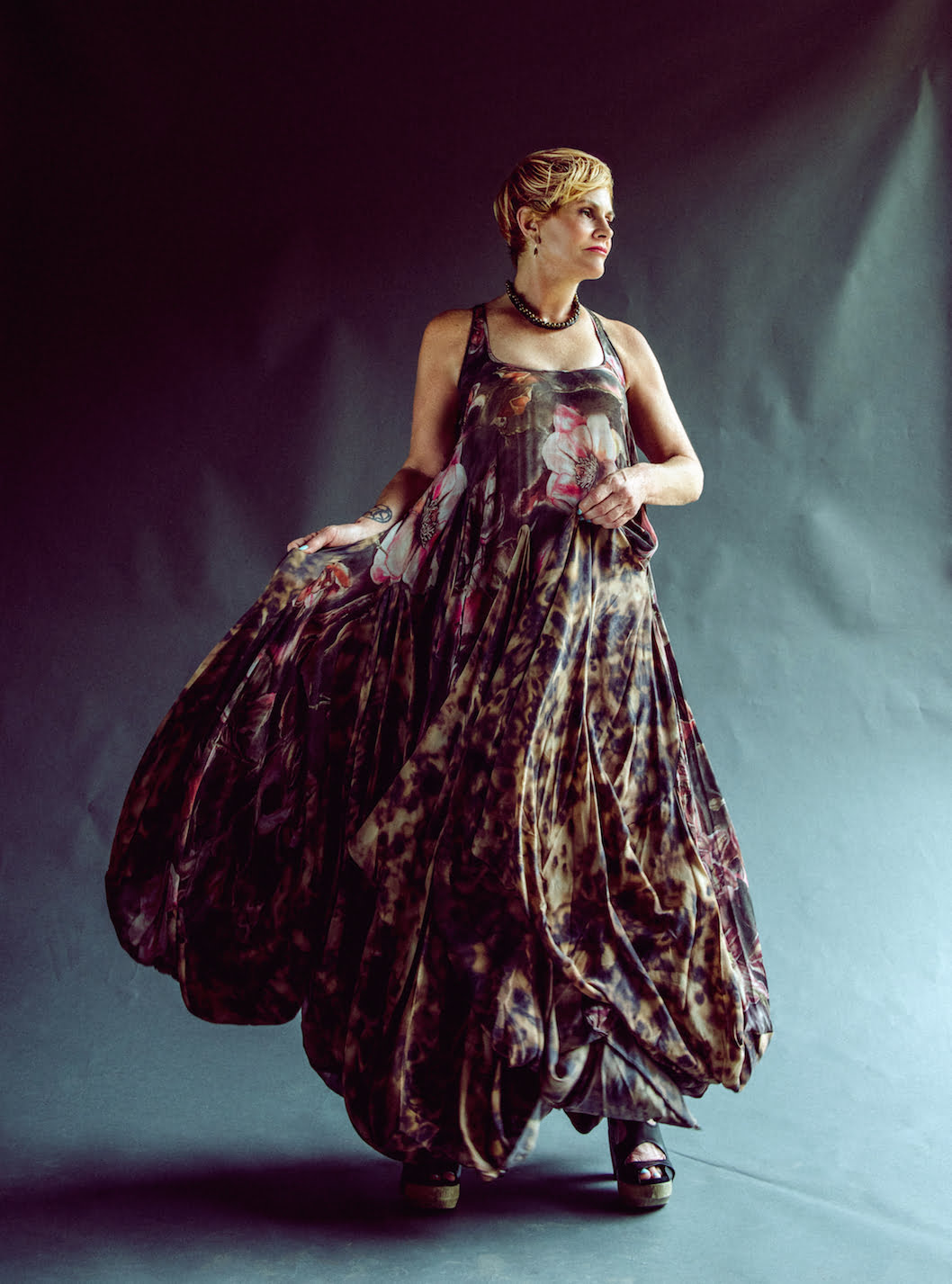Named for its two members — My Larsdotter, pronounced “me,” from Sweden and Guðbjörg Tómasdóttir, nicknamed “Bubba,” from Iceland — My Bubba's harmony-centric vocals and minimal instrumentation lend the duo a mesmerizing and timeless quality, one that’s as captivating on a stage as it is a street corner. Their latest record, Big Bad Good, capitalizes on their improvisational capabilities with many numbers that were recorded as they were being written, a process that took place in the studio of producer Shahzad Ismaily and expanded into an 11-song gem released last month on the duo’s label, Cash Only. Turns out, My Bubba is informed by — and even distantly connected to — some of folk’s greats.
When did you first realize that making music together was something that was good and that you wanted to pursue?
My: So that happened pretty much the first day we spent together, which was when Bubba moved into my apartment. I had a room to rent in Copenhagen in Denmark about eight years ago. Bubba was unpacking boxes, and I was doing dishes in the kitchen and I was singing to myself at the same time, and she came up and sort of asked me to sing on the song she was writing — to do a harmony or something. I agreed to do that, but I had never really sung with anyone before, never thought about being in a band even, but I [said], "I think I can do that. I’ll try." So we did, and we immediately had such a good time together. We kept doing that basically every time we were home together and had time to spare. We’d sit down on my couch and Bubba would play guitar and we would just harmonize. Most of the time we’d be humming at the beginning, and then we started writing songs together. It was very immediate, and was pretty much our first interaction.
Bubba: I think My covered the grounds. It was immediate and effortless. Even though we were not trained musicians or anything like that, we both had a very strong relationship with music in our own way. When we met, we liked that we could share that very naturally and create our own music. Of course, a lot has happened since then — this was eight years ago. We say that music came and chose us. Opportunities kept coming at us and we would always say yes to them. It took us on a lot of adventures.
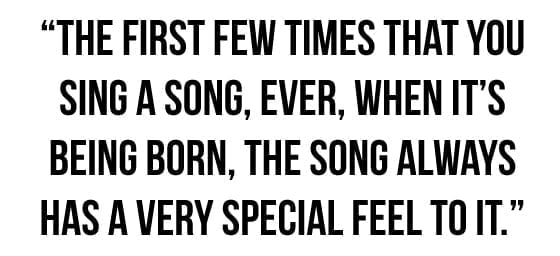
I’ve heard a lot about how quickly you recorded these songs after they were written. Did you approach Big, Bad, Good differently during the recording process than any of your previous work?
Bubba: The first few times that you sing a song, ever, when it’s being born, the song always has a very special feel to it … before you’ve rehearsed it, before you find the exact form of a song. We were very intrigued by exploring, let’s say, if we could capture on the record the songs the first few times that they’d become songs. We went into the studio without even having … I mean we had some ideas, some sketches, in our heads, but no finished songs, and we wrote all of the materials as we were recording.
My: So Goes Abroader, the second record — the one before this — we had a very clear idea of what we wanted to sound like as we were writing it and planning the recording sessions. We ended up very close to that, which we were very happy with, of course. With this one, we wanted to challenge ourselves in the writing process by doing it in the studio and we also wanted to, like Bubba was saying, explore that freshness of a song as it’s being written.
It was all kind of because we had met Shahzad [Ismaily], who produced the record. The first time we met him, we had a jam session during a home night in Iceland with some other musicians — Damien Rice and Sam Amidon and [others]. It was a very fun, creative night and we had a connection with [Ismaily] right away. The next time we met him, he told us about his studio that he had just finished and invited us to come make a record with him, and we said we’d love to, but we didn’t have any new material at the time, so maybe later. He said, "No — you don’t have to have songs. Just come over and we’ll see what happens."
We got used to that idea very quickly and decided it was exactly what we wanted to do that that time. It seemed like the perfect challenge, and especially having had that experience with him collaborating creatively in that way, it seemed like the right thing for us to do at the time. It was great, and we’re very happy with the result.
Bubba: Going into the studio, we had no idea what was going to come out. No expectations. We didn’t even know if we were going to come home with a record.
My: All we came with was some kind of confidence, that working with Shahzad was going to lead to something nice.
I loved something you said about your recent video for album track “Charm.” You called it the CliffNotes to your “unauthorized biography,” and I thought that was an interesting way to describe something you wrote. What made you describe it that way?
My: Well, when they asked me to say something about the song and the video and I thought about the lyrics, most of it was a poem that I wrote several years ago that I’d just wanted to be used in a song. That text, I feel, is a condensed version of my experience of being me. At the same time, it’s not written deliberately to be that. I guess that’s the unauthorized part — it’s kind of semi-subconscious poetry.
You could argue that the title track has a biographical element, too. The lyrics about relatives and ancestry lend a lot to the song. Are you inspired by history, family?
Bubba: I have always been really interested in history and my own history and I think, especially at this age, when you’re finally becoming an adult, I feel that I think a lot about where I come from and where my parents come from and try to learn from their journeys. I was inspired by those kinds of feelings, writing that song, in particular … looking back and finding your own place in that chain of stories and deciding how you want to keep building from there, feeling some kind of responsibility and wanting to make something positive and great with your own life.
Another great part of the song is the way it loops and multiplies the harmonies. What inspired that? To me, there are elements there that recall old, old folk songs, gospel songs, hymns — as well as more modern remixes and electronic music. Did that come from any particular place of inspiration?
My: It happened on the spot. We had the chords, the "big, bad, good" part. That was something I had come up with some months earlier, so that’s the part we had. The lyrics we were writing that day, and Shahzad was working out that beat. Once the beat was there, we decided to go in and start singing what came to us. We did that in layer after layer after layer and it became what it is, pretty much, with some editing and adding some things after. But that’s very much how it happened — it’s what came to us instinctively.
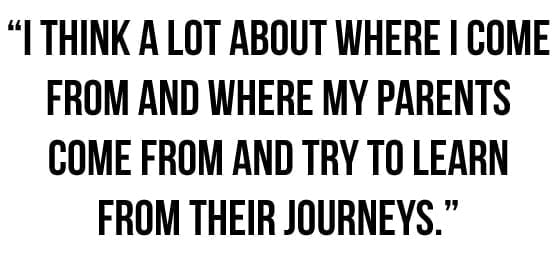
I noticed also that you reference other artists in your songs. What made you decide to do that in such an overt way? It feels cliché to ask a musician in an interview, "Tell me about your influences," but you seem to invite a certain amount of comparison with those kinds of lyrics.
My: In "Big Bad Good," we talk about Paul Simon, and that is probably, mostly … I mean, I couldn’t say for sure … I’m interpreting my own lyrics here, but my dad used to sing to me a lot when I grew up. He has a very Simon and Garfunkel-y voice, so it’s really kind of talking about him. Also, we are compared to Simon and Garfunkel, our sound.
Also, Bob Dylan is sort of a relative of mine. [Laughs] Well, we joke about it often when we play live because one of the first songs we played together was Bob Dylan, “You’re Gonna Make Me Lonesome When You Go.” And we keep playing it, eight, nine years later. So before we play it, I usually say, "Now we’re gonna play a song that was written by my father’s wife’s ex-husband’s mother’s previous lover." [Laughs] And, that is how I’m related to Bob Dylan.
Bubba: We call him Uncle Bob.
My: Yes. We never met him. We’d love to just have him hear our version of the song. I feel like it’s gonna happen someday.
